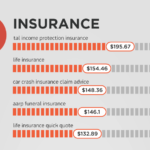Unlock the Editor’s Digest for free
Roula Khalaf, Editor of the FT, selects her favourite stories in this weekly newsletter.
Marine Le Pen’s far-right party is teaming up with Italy’s League in the new “Patriots for Europe” group founded by Hungary’s Viktor Orbán, which is set to be the third-largest faction in the European parliament.
The group has 84 MEPs and will be chaired by Jordan Bardella, president of France’s Rassemblement National, who led the party’s campaign in elections for the EU assembly last month. It includes eight lawmakers from Matteo Salvini’s League.
“This is a historic day,” said Jean-Paul Garraud, another RN lawmaker in Brussels. “We are against the EU becoming a superstate dominating our nations.”
One of the group’s vice-presidents is the controversial Italian army general Roberto Vannacci, a fierce critic of the west who was the top League candidate in the EU vote. Vannacci was Italy’s military attaché in Moscow when Russian President Vladimir Putin ordered the invasion of Ukraine in 2022. He was suspended from active duty after publishing an inflammatory book attacking liberalism, the LGBT+ community and black Italian athletes.
The Patriots were founded by Austria’s far-right Freedom party (FPÖ) and Orbán, along with the Czech Republic’s Ano party of former prime minister Andrej Babiš.
The group seeks to cut immigration, repatriate powers from Brussels to national governments and reverse EU climate policies.
But the Patriots are already split on Russia and Ukraine.
During the opening press conference, Austrian MEP Harald Vilimsky praised Orban’s trip to Moscow last week, which has been roundly criticised by EU and Nato leaders. Fellow Patriots vice-president Sebastiaan Stöteler of the Netherlands said his Freedom party would stand with Ukraine.
Jorge Buxadé Villalba, leader of Vox from Spain, said he favoured the “territorial integrity of Ukraine”.
Vox quit Italian Prime Minister Giorgia Meloni’s ECR to join the Patriots, relegating Meloni’s group to fourth place. The liberal Renew group built around Emmanuel Macron’s centrists has slid into fifth with 76 members. The centre-right European People’s party is the largest group in the assembly, followed by the Socialists & Democrats.
The Patriots in effect replaces Identity and Democracy (ID), the former home of Le Pen and Salvini, which had 49 members in the previous assembly. The Dutch Freedom party (PVV) of Geert Wilders and Belgium’s ultranationalist Vlaams Belang switched to the Patriots from ID over the weekend.
But the proliferation of rightwing groups also means their dreams of a super-merger that would wield significant power in the EU assembly appear to be over.
“There is still a very solid majority on the other side,” said Nathalie Tocci, director of the Rome-based Institute of International Affairs. “In terms of policy, you can see them slowing down the legislative agenda on certain points, but you can’t quite see them able to completely derail or reverse that agenda.”
Nicolai von Ondarza, head of Europe for the German think-tank SWP, said he thought the main aim was to influence decisions in the Council of the EU, which groups member states.
“I believe the real target of the Patriots is the council, where they hope to get a significant number of national governments together.”
Apart from Hungary where Orban’s Fidesz party rules unchallenged, the PVV and the League are in governing coalitions in the Netherlands and Italy, respectively, and the FPÖ is likely to win elections in Austria later this year.
Parties can bid for jobs such as committee chairs and vice-presidents, but MEPs still vote on the positions, and the pro-European majority operates a “cordon sanitaire” to keep any far-right lawmakers out of power.
Garraud said it was “unacceptable” to keep them out of power. “We represent millions of voters.”
Alternative for Germany leader Alice Weidel, whose MEPs were expelled from ID over comments made by their lead candidate who condoned the Nazi SS, told the Financial Times last week that she was also seeking to form a group — potentially based on the remains of ID. The ID is set to be dissolved unless Weidel convinces MEPs from six other countries to join up.





